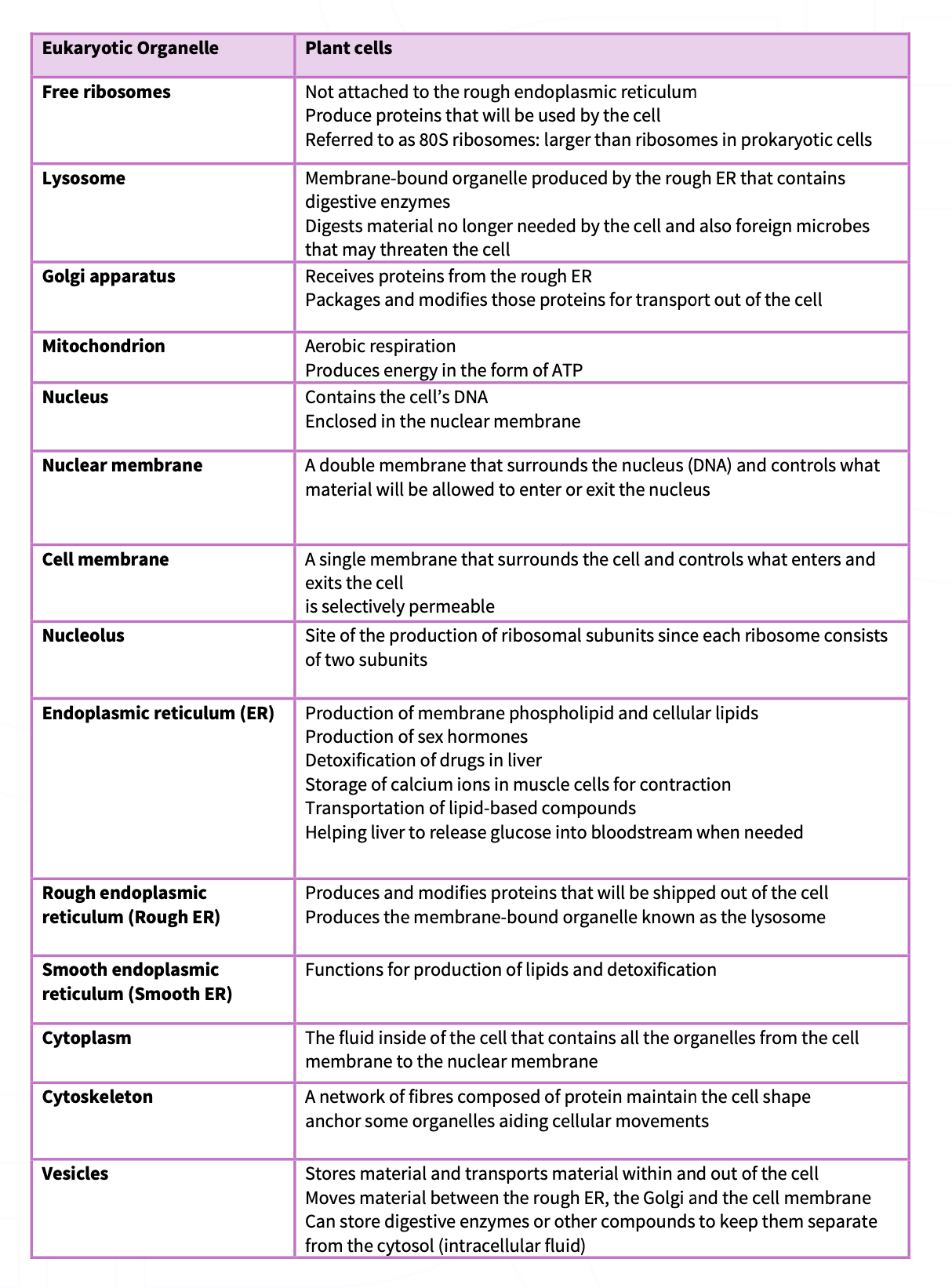What are the functions of eukaryotic organelles in plant cells?

Understand the Problem
The question presents a list of eukaryotic organelles found in plant cells, along with their functions. It aims to identify and explain the roles of different organelles in plant cells.
Answer
Eukaryotic organelles include ribosomes for protein synthesis, lysosomes for digestion, the Golgi apparatus for protein modification, mitochondria for ATP production, and the nucleus for housing DNA.
Eukaryotic organelles have various functions in plant cells, such as protein synthesis, energy production, and material processing. Ribosomes produce proteins, lysosomes digest materials, the Golgi apparatus modifies proteins, and mitochondria generate ATP. The nucleus contains DNA, while membranes regulate material flow.
Answer for screen readers
Eukaryotic organelles have various functions in plant cells, such as protein synthesis, energy production, and material processing. Ribosomes produce proteins, lysosomes digest materials, the Golgi apparatus modifies proteins, and mitochondria generate ATP. The nucleus contains DNA, while membranes regulate material flow.
More Information
Eukaryotic plant cells have specialized organelles, each playing an essential role in maintaining cellular functions and supporting life processes such as growth, repair, and reproduction.
Sources
- Eukaryotic Cells | Biology I - Lumen Learning - courses.lumenlearning.com
- Cellular organelles and structure (article) - Khan Academy - khanacademy.org
- Organelle Function Types & Importance - Lesson - Study.com - study.com
AI-generated content may contain errors. Please verify critical information